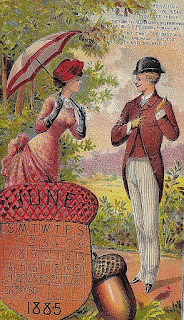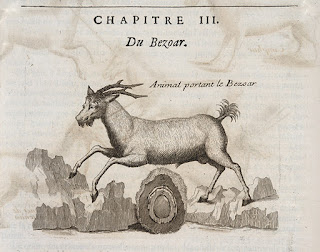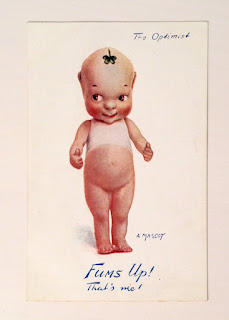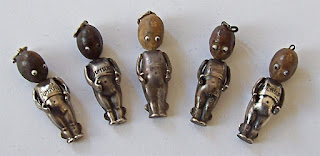Acorns
According to Norse folklore, acorns and oak trees were thought to bring good fortune. The Vikings associated oak trees with Thor, the god who created thunder and lightning with his great anvil and hammer. Because the tree attracted lightning, it was sacred to Thor. The Vikings believed that the fruit of the oak tree, the acorn, was spared Thor's wrath, so Vikings placed a lone acorn on their windowsills to protect their houses from lightning.
The English oak tree is the national tree of England and symbolizes strength and endurance. It’s abundant in English folklore and history, from Celtic religious leaders who worship in oak groves to lovers reciting their wedding vows under its sturdy branches.
Bezoars
This “charm” is a mass that forms in the stomach of goats, deer, and other animals. Many cultures believe that crushing the bezoar into powder could save a poison victim, while others dropped the bezoar into a glass to check for poison before drinking. Carrying the stone is thought to offer protection against illness and bad fortune.
The Buttercup
There are endless floral motif symbols in Victorian jewelry, but perhaps none as favorable as the delightful, buoyant, sweet, and simplistic, golden yellow buttercup flower. They symbolize happiness, friendship, and new beginnings.
A Boar on a Hat
The idea of a lucky pig actually has a long history in Europe. Small metal boars were used as amulets or attached to helmets to give good luck to soldiers in Northern Europe.
A Creepy Doll Giving the Thumbs Up
The little good luck charms were called fumsups, after the fact that they all gave little thumbs ups. They became popular in the1880s, reaching their peak in popularity during the First World War.
~~~
Don't forget to check out these posts too!
- Strange, Rare, and Dark Things - The Peculiar Antiques of Strange Luck
- Cabinet of Curiosities - How I Got Into Antiques









No comments:
Post a Comment